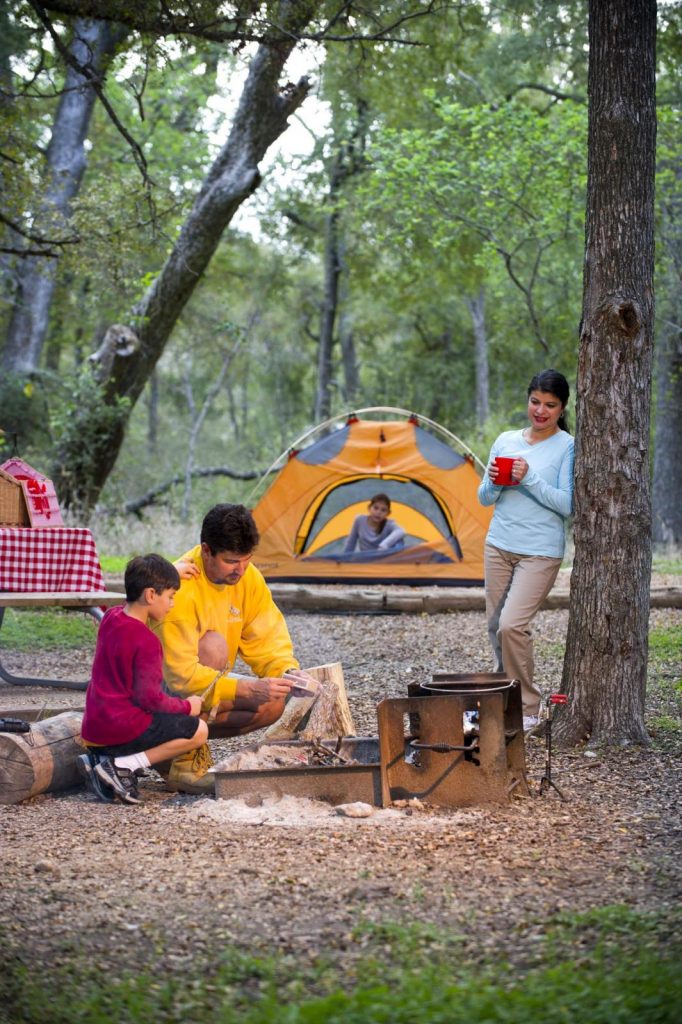
A family camping trip is sure to be memorable. Photo courtesy of Texas Parks & Wildlife Department.
Maybe your children can tell stories of playing cards in a soggy tent as raindrops popped against the nylon walls. Or maybe you remember being young yourself, roasting marshmallows and nestling into a cozy sleeping bag to watch the Milky Way wheel overhead. As anybody who’s gone on a family camping trip will attest, such experiences produce rich memories. And if you don’t have any yet, there’s no reason to miss out.
Fortunately, even during the COVID-19 pandemic, families ready to embark on new camping adventures have opportunities to do so. Once you sort the basics, says John Sauva, who manages the Texas Parks and Wildlife Department’s Outdoor Family Program, camping is a great, stress-relieving way to make memories.
“We hear these stories all the time from these parents about how they remember camping in a state park, but for some reason, they never did it again,” Sauva says.
To help families get started, Sauva’s courses emphasize three main principals: fun, safety, and maintaining a low-impact, leave-no-trace site. “If you pick a flower for your mother,” Sauva cautions, “then that’s one less flower for a pollinator. But if you leave it be, that means there’s more food for a honey bee or a butterfly.”
Sauva says planning and preparation remain at the heart of any successful camping trip. You don’t need the best gear, he notes, but you need to know how to use it. Putting up a new tent after a long drive can be downright frustrating, so try setting it up in the yard first. Get the kids involved. Take time to lay out your mats and bags, and spend time in the tent so the whole family can imagine sleeping there.
Sean Bibby, community outreach coordinator at Whole Earth Provision Co., the Texas-based outdoor retailer, notes that gear has evolved quite a bit since the first Whole Earth shop opened its doors 50 years ago. While the fun of family recreation and the value of outside time remain unchanged, Bibby says, better gear, including user-friendly tents, assures camping novices basic ease and comfort.
Current online camping workshops hosted by Whole Earth are very popular.
Bibby, who has a 2-year-old son, sees no minimum age for taking kids camping, but he does suggest strategies to assure children “buy-in” to the experience. Have them help with small chores, choose menu items, and carry their own spoon or other personal items if you will be backpacking. “Cooking should not be an issue,” he adds, noting that a little planning can go a long way when it comes to meals. “A lot of it is making sure you have the right mindset about the food before you load up the car.”
If you have a stove, make sure you have enough fuel; if you are using a grill, how do you plan to spark the charcoal? These are the sorts of things to keep in mind.
And if sleeping outdoors still feels unnerving, that sensation should soon pass with experience. Just check the weather, double-check your family’s packing list, and find your site.








